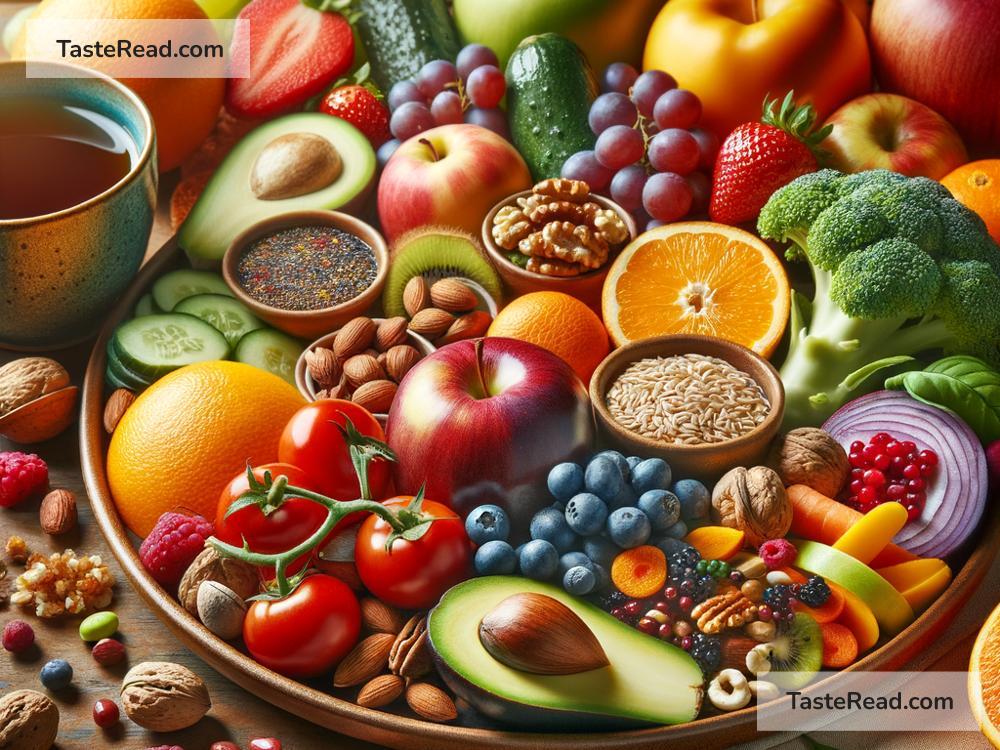The Benefits of a Balanced Diet for Mental Health: Supporting Emotional Well-Being
When we think about mental health, we usually picture therapy sessions, stress management techniques, or relaxing activities like yoga and meditation. But there’s another important factor that often gets overlooked—our diet. What we eat doesn’t just affect our physical health; it also plays a key role in our emotional and mental well-being. A balanced diet can support our mood, concentration, energy levels, and even reduce the risk of mental health challenges. Let’s explore how a nutritious diet can improve mental health and overall emotional resilience.
What Is a Balanced Diet?
First, let’s clarify what we mean by a balanced diet. A balanced diet is one that includes a variety of foods from all major food groups:
- Fruits and Vegetables: These are packed with vitamins, minerals, antioxidants, and fiber.
- Whole Grains: Foods like brown rice, whole-wheat bread, and oats provide long-lasting energy.
- Proteins: Lean meats, fish, eggs, beans, nuts, and seeds help repair tissues and support brain function.
- Healthy Fats: Sources like avocados, olive oil, nuts, and fatty fish contain omega-3 acids that benefit brain health.
- Dairy or Dairy Alternatives: These provide calcium and B vitamins, important for nerve and muscle function.
A balanced diet means eating these foods in the right amounts while limiting processed foods, sugary snacks, and unhealthy fats that can negatively affect both physical and mental health.
How Does Diet Affect Mental Health?
You might wonder how the food on your plate connects to your brain. Well, the brain is like a high-powered machine that needs the right fuel to function properly. Eating well ensures our brain gets the nutrients it needs to perform its best. Here are some key ways diet impacts mental health and emotional well-being:
1. Stabilizing Mood
Certain foods can help keep our mood steady and reduce feelings of stress, anger, or sadness. For example, whole grains and other foods rich in complex carbohydrates help our brain release serotonin, a “feel-good” hormone that improves mood. In contrast, a diet full of sugary snacks and processed foods leads to mood swings and crashes, making us feel tired and irritable.
2. Reducing Anxiety and Depression
Nutrient deficiencies can play a major role in mental health conditions like anxiety and depression. Studies have found that omega-3 fatty acids, found in fish like salmon and walnuts, can ease symptoms of depression. Similarly, B vitamins (found in eggs, leafy greens, and beans) are essential for keeping the mind sharp and reducing feelings of fatigue and stress. A poor diet that lacks these nutrients can make emotional challenges worse.
3. Boosting Energy and Focus
Ever felt sluggish after finishing a greasy burger or bag of chips? Junk food might taste good, but it doesn’t fuel your body properly. Eating nutritious foods—like lean proteins and whole grains—keeps your blood sugar stable and provides long-lasting energy. This helps you stay focused, motivated, and productive throughout the day.
The Gut-Brain Connection: Why Your Stomach Matters
Another surprising link between diet and mental health is the connection between your gut and brain. Your gut is home to trillions of tiny microorganisms, called the gut microbiome, which play an important role in how you feel mentally and emotionally.
Foods rich in probiotics, like yogurt, kefir, and fermented vegetables, support a healthy gut microbiome. Prebiotic-rich foods, such as bananas, garlic, and onions, also help your digestive system thrive. When your gut is healthy, it sends positive messages to your brain, improving your mood and reducing stress. On the other hand, an unhealthy gut can lead to inflammation, which is linked to anxiety and depression.
Foods to Include (and Avoid) for Better Mental Health
To improve your emotional well-being, focus on eating these brain-friendly foods regularly:
Foods to include:
- Fruits and vegetables: Spinach, broccoli, berries, oranges, etc.
- Whole grains: Brown rice, oats, quinoa, whole-wheat bread.
- Healthy fats: Avocado, olive oil, nuts, seeds, fatty fish.
- Lean protein: Chicken, fish, eggs, tofu, beans.
- Probiotics: Yogurt, sauerkraut, kimchi.
Foods to avoid:
- Sugary snacks: Candy, soda, cakes.
- Processed foods: Packaged chips, frozen meals.
- Unhealthy fats: Fried foods, fast food, margarine.
If you start eating more of the foods in the “include” list and cut down on the “avoid” list, you’ll likely notice improvements in how you feel overall.
Taking Small Steps Toward a Balanced Diet
Changing your diet doesn’t have to happen overnight. Small steps can make a big difference. Start by adding one or two servings of fruits and vegetables to your meals every day. Swap white bread for whole-wheat. Replace sugary drinks with water or herbal tea. Gradually, these changes will add up, and you’ll begin to feel the positive effects.
If you’re not sure where to begin, talking to a nutritionist or doctor can help you create a meal plan tailored to your needs. Remember, every small effort to eat better supports not just your physical health but your mental health, too.
Final Thoughts
Mental health relies on many factors, such as sleep, relationships, and stress levels—but diet is often a forgotten piece of the puzzle. A balanced diet provides your brain and body with the nutrients they need to function optimally. By eating a variety of wholesome foods, cutting back on processed snacks, and paying attention to your gut health, you are taking an important step toward feeling calmer, happier, and more emotionally balanced.
Next time you’re deciding what to eat, remember: The food you choose impacts not just your body but your mind, too. Eating well is an act of self-care—because when we feed our bodies with goodness, we nurture our souls as well.


